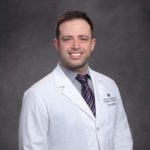Though it is sold legally on the internet, etizolam is not completely safe to use. Learn about how people can easily become addicted to etizolam.
Etizolam may sound familiar because of its similarity to some other popular prescription medications. It is most similar to benzodiazepines, which are a class of drugs that treat anxiety and seizure disorders.
Examples of these types of medications include:
Etizolam belongs to the class thienodiazepine and is not in the same class as these drugs. However, it is very similar to benzodiazepines in how it functions. For example, both classes of medications are used to treat anxiety.
A primary difference between etizolam and benzodiazepines is that etizolam is not available by prescription in the United States, while benzodiazepines are commonly prescribed.
However, etizolam and other thienodiazepines are available in other countries by prescription and are often purchased for illicit use from the internet. The Drug Enforcement Administration recognizes the potential for addiction and abuse of etizolam, but it has not been classified as a controlled medication. The Food and Drug Administration also has not approved etizolam for medical use.
Despite the fact that it can be purchased online and that its use is not illegal, there is evidence that etizolam has a high potential for addiction and abuse. It carries a similar abuse potential as benzodiazepines.
Article at a Glance:
- Etizolam is a prescription medication in some countries but not in the United States
- Etizolam is not illegal to obtain in the United States, but it is still a very addictive medication
- People obtain it over the internet and can become addicted thinking it is safe when it is not
- Withdrawal symptoms can include tremors, confusion and panic attacks
- Detox can happen for days and sometimes weeks after the last use
- Withdrawal symptoms can continue for months and may have a huge impact on the quality of life
- Treatment programs can help a person overcome the difficulties of withdrawal
Etizolam Withdrawal Symptoms
Etizolam is known to cause withdrawal symptoms in people who become dependent. Developing a dependency means that a person must continue taking a drug, or else they will feel uncomfortable side effects from stopping.
Etizolam over-activates GABA-A receptors in brain cells (neurons). Normally, these receptors are located on the surface of cells and function as “off” switches for signals in the brain.
When etizolam is present in the brain for long periods, neurons become used to high levels of the drug and how much they activate GABA-A receptors. In response, neurons make less of these receptors.
When a person stops taking etizolam or tries to lower their dose, their neurons do not have enough GABA-A. Therefore, they feel symptoms of withdrawal. Some etizolam withdrawal symptoms may include:
- Agitation or anxiety
- Confusion
- Cravings for etizolam
- Irregular heart rhythms
- Nausea and vomiting
- Panic attacks
- Tremors
- Trouble concentrating
- Trouble sleeping
Etizolam Withdrawal Causes and Diagnosis
A person experiences withdrawal symptoms when etizolam changes the chemistry of their brain cells. These changes occur when a person takes it for long periods, such as weeks or months.
Taking increased doses of the drug for extended periods will cause dependency. Once someone is physically dependent, they will experience withdrawal symptoms.
A recent study showed that a person could become addicted to etizolam in as little as one month. The person required medical support to stop using the drug and experienced severe withdrawal symptoms consistent with addiction.
Etizolam Detox
During addiction treatment, there are three different phases:
- Detox
- Treatment
- Maintenance
The detox period describes when the body metabolizes the drug and removes it from the body and then returns to normal functioning.
For most drugs, the detox period is the amount of time it takes the body to remove a drug plus how long it takes for withdrawal symptoms to go away.
Etizolam is removed from the body in about 13 hours, which is based on five half-lives of the drug’s metabolism. However, the removal process is not that simple. When the body breaks down etizolam, it breaks it into other drugs that are also active themselves. These “active metabolites” function in a similar way to the parent drug and prolong the symptoms of impairment and addiction.
Etizolam has active metabolites that can stay in the body for up to 40 hours. Also, some people metabolize etizolam slower than others and it can stay in their body for up to three-and-a-half days.
Like benzodiazepines, the return to normal functioning after initial detox can take anywhere from several days to months, or even years, depending on how long a person has been abusing the drug.
What to Expect During Etizolam Detox
Detox for etizolam and similar drugs is often slow and uncomfortable. Expect withdrawal symptoms to continue for long periods and impact daily life.
People experiencing etizolam withdrawal can greatly benefit from the support provided by a medical detox program. Rehab programs like the ones offered by The Recovery Village have medical teams to provide support and lessen the permanent harm that could result from the detox process.
How Long Does Etizolam Withdrawal Last?
The detox process may take months to years, depending on how long a person has abused etizolam. Similar drugs may require a slower tapering schedule to ensure that withdrawal symptoms are kept to a minimum.
Each person’s journey to recovery is a little different, and factors like individual metabolism, length of drug abuse and willingness to seek treatment will all play roles in the length of the recovery process.
Etizolam is sold online as a “research chemical,” and people can obtain it legally. This does not mean it’s safe. If you or someone you know has been purchasing etizolam, it is a very addictive substance with a high potential for addiction and abuse. Call The Recovery Village to learn about treatment options today.
Visit the following websites to learn about The Recovery Village’s network of drug and alcohol rehabilitation treatment facilities. Call today for admissions. Each center is ready to help people learn how to cope with their addiction and uncover the root causes for their substance use disorder.
- Orlando Recovery Center: A premier rehabilitation facility in Orlando, Florida that helps individuals recover from addiction and substance use disorders. The center also offers the opportunity to treat co-occurring disorders.
- The Recovery Village Columbus: Located in Ohio, this facility provides inpatient, outpatient and aftercare treatment for people looking to begin detox. The center provides individualized plans to help patients through recovery while addressing their unique co-occurring disorders or any setbacks that may happen during recovery.
- The Recovery Village Palmer Lake: In Colorado, this facility offers inpatient, outpatient and intensive outpatient treatment for individuals looking to kick-start their journey to recovery.
- The Recovery Village Ridgefield: Located right in southern Washington, this facility provides patients with outpatient and aftercare programs. Just 20 minutes outside of Portland, this facility assists individuals who are ready to begin treatment.
- The Recovery Village: In Umatilla, Florida, this is a rehabilitation facility that provides resources for individuals seeking drug and alcohol treatment. There are inpatient, outpatient, intensive outpatient and partial hospitalization treatment programs available for those suffering from Ambien addiction.
- IAFF Center of Excellence: Specializes in assisting firefighters who struggle with behavioral health problems and addiction. Members can enter the recovery process sooner so they can return back to work as quickly as possible. Inpatient, partial hospitalization and intensive outpatient programs are all available at this facility, where patients can address their Ambien addiction in a safe, supportive environment.
- Denver Mental Health & Counseling: Denver Mental Health and Counseling by The Recovery Village is a physician-led outpatient center specializing in evidence-based addiction and mental health treatments, offering services such as TMS, IOP, and personalized care for both ongoing and new patients, dedicated to fostering long-term recovery and overall well-being.
- The Recovery Village Palm Beach at Baptist Health: The Recovery Village Palm Beach at Baptist Health is a premier physician-led treatment center in South Florida, offering a comprehensive spectrum of services from medical detox to outpatient programs for alcohol, drug, and co-occurring mental health conditions, with a commitment to rejuvenating lives, families, and communities, and facilitating same-day admissions.
- The Recovery Village Atlanta: Located in Roswell just outside downtown Atlanta, is a 62-bed physician-led treatment facility offering a comprehensive range of services, from medical detox to outpatient care, specializing in alcohol, drug, and co-occurring mental health conditions, dedicated to transforming lives, families, and communities throughout Georgia.
- The Recovery Village Kansas City: The Recovery Village Kansas City, an 80-bed facility in Raytown just 10 miles from downtown, offers a comprehensive range of evidence-based treatments for addiction and mental health conditions, overseen by physician leaders, and is dedicated to revitalizing lives, families, and communities throughout the Midwest.
- The Recovery Village Cherry Hill at Cooper Health: The Recovery Village Cherry Hill at Cooper, situated just 20 minutes from Philadelphia, is a leading rehab facility in South Jersey providing comprehensive, evidence-based addiction and mental health treatments, ranging from medical detox to teletherapy, with a dedicated team committed to guiding adults on their path to lifelong recovery.


Etizolam Treatment and Rehab
Drug Enforcement Administration. “Etizolam.” Accessed September 12, 2019.
DrugBank. “Etizolam.” 2012. Accessed September 12, 2019.
Garg, Bhavuk; Sumit, Gupta. “A Case of Etizolam Dependence.” Indian Journal of Pharmacology, 2014. Accessed September 12, 2019.
The Recovery Village aims to improve the quality of life for people struggling with substance use or mental health disorder with fact-based content about the nature of behavioral health conditions, treatment options and their related outcomes. We publish material that is researched, cited, edited and reviewed by licensed medical professionals. The information we provide is not intended to be a substitute for professional medical advice, diagnosis or treatment. It should not be used in place of the advice of your physician or other qualified healthcare providers.